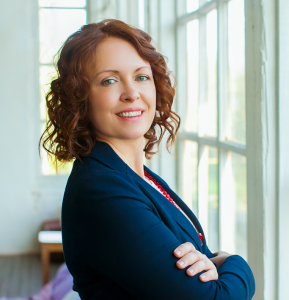© 2016 Inna Vladimirovna ZINOVYEVA
2016 – №2 (12)
 Keywords: homeopathy, traditional medicine, complementary medicine, nonconventional medicine, conventional medicine, Russian public health, integrative medicine, Stuttgart Declaration (2016), antibiotic resistance
Keywords: homeopathy, traditional medicine, complementary medicine, nonconventional medicine, conventional medicine, Russian public health, integrative medicine, Stuttgart Declaration (2016), antibiotic resistance
Abstract: The author reviews and sums up the results of the First Eurasian Congress on Homeopathic Medicine which worked in Moscow in October 2016. The text outlines lectures and reports presented at various meetings, peculiarities of homeopathy development in today’s world. At present, professional public associations of doctors and supporters of homeopathy have been created and are actively working in Russia: the Russian Homeopathic Association (1991), the Russian Homeopathic Society (1990); in 2016, the Nonprofit Partnership for the Promotion of the Development of Homeopathy “National Council for Homeopathy” was established. The Congress showed that the scientific research in the field of homeopathy today is at a rather high level. Homeopathic clinicians and scientists from various fields of science are making great efforts to develop a research base in the field of homeopathy presenting it as a valuable therapeutic method to the medical community and general public.
The First Eurasian Congress on Homeopathic Medicine was held on October 14-15, 2016 in Moscow, combined with the 25th Congress of the Asian Homeopathic Medical League. The scale of the event is evidenced by the number of participants: about 400 people from 16 countries who submitted more than 90 papers.
The organizers of the joint congress are the Asian Homeopathic Medical League, the National Medical Chamber, the Russian Homeopathic Association, the Russian Homeopathic Society, the Russian Professional Medical Association of Traditional and Folk Medicine Specialists.
The united congress was held under the motto “Homeopathy speaks to modern medicine”; special attention was paid to such an urgent issue as integration of homeopathy as an effective medical method to the system of healthcare.
The lecture of Dr. M.-G. Sterner (Germany) “Why do we need integrative medicine?” gave an overview of the problems of today’s society: ecology and environmental pollution, the associated toxic load on the human body, iatrogenic diseases, microorganism resistance, chronic diseases, poverty, ethical problems of medicine. Quoting Thure von Uexküll, one of the founders of psychosomatics, Dr. Sterner noted that “in the twentieth century, the spirit has been expelled from medicine, and now our task is to return it.” Now it is important to create a new system where the patient’s personality, rather than profit, will come first. It is necessary to promote prophylactics and patients’ responsibility which have not existed in health care for a long time. Such a new approach is integrative medicine which is a fusion of scientifically-based (conventional) medicine with medicine that is not conventional (traditional, folk, etc.), part of which is homeopathy.
M.-G. Sterner also presented a report on the Stuttgart Integrative Health & Medicine Declaration. It was adopted in June 2016 at the International Congress on Integrative Medicine (Stuttgart, Germany) and was originally signed by the participants of this congress. But due to the great importance of the problem, as well as taking into account WHO’s traditional medicine strategy for 2014-2023, it was suggested that anyone who agrees with the statements of this document should sign the Declaration on the website of the Congress (www.icihm.org).
Professor E. Baars (Netherlands) in his lecture “Antibiotic resistance – the problem of modern medicine. Prospects of complementary medicine” drew attention to the fact that antibiotic resistance is a burning world problem which provokes growing burden on healthcare systems. Prof. Baars presented an international research project aimed at assessing, deepening knowledge and optimizing the products and services of complementary, alternative and integrative medicine and their introduction into practice.
However, one declaration of the fact that homeopathy corresponds to the idea and spirit of integrative medicine, as well as WHO traditional medicine strategy, are not sufficient. Today it is quite obvious that in order for homeopathy to become an acknowledged part of the medical system, it must have a broad research base. This enhances the importance of the Eurasian Congress: it can become one of the platforms for developing a program of scientific research, combining the efforts of homeopathic clinicians and scientists engaged in research in the field of homeopathy. Scientific reports presented by participants of the Moscow congress showed that the study of homeopathy goes in many directions.
The full version of the article in Russian